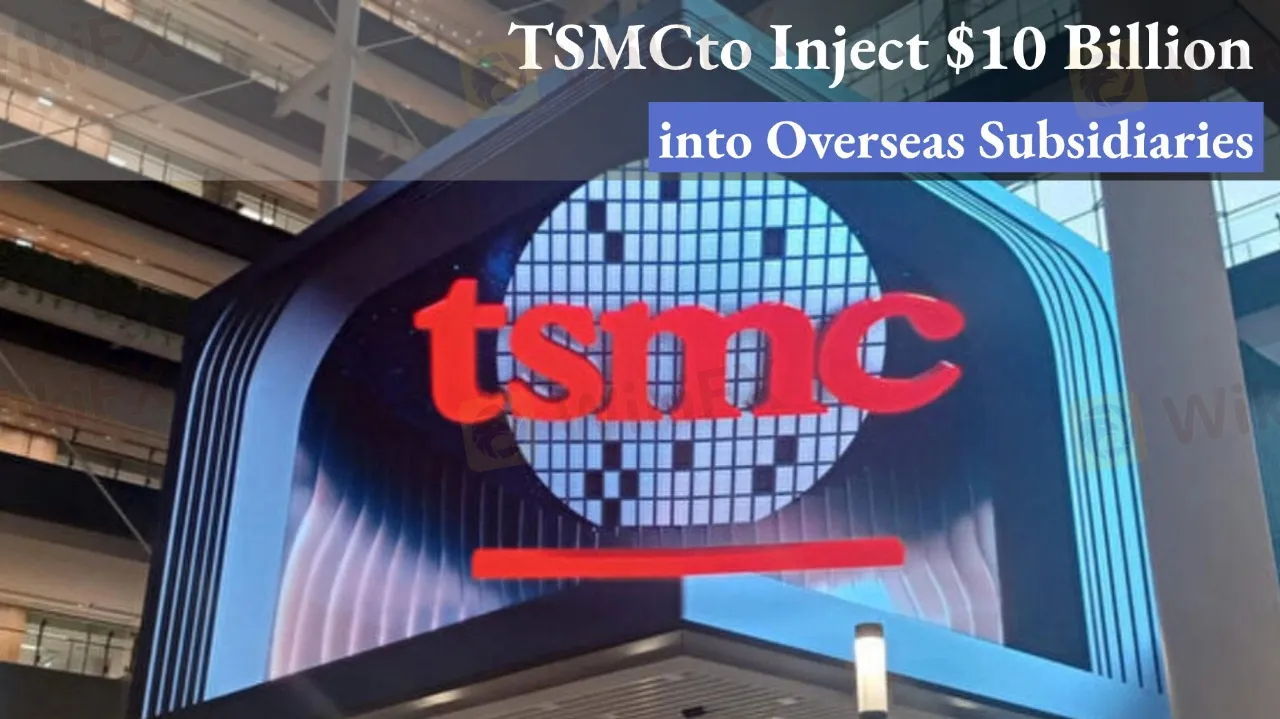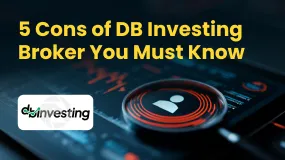简体中文
繁體中文
English
Pусский
日本語
ภาษาไทย
Tiếng Việt
Bahasa Indonesia
Español
हिन्दी
Filippiiniläinen
Français
Deutsch
Português
Türkçe
한국어
العربية
TSMC to Inject $10 Billion into Overseas Subsidiaries
Abstract:In response to intensifying global competition and pressure from a strengthening New Taiwan dollar, TSMC has announced a massive $10 billion capital injection into its overseas subsidiary. This marks the company’s largest capital operation ever to manage foreign exchange risks and enhance financial flexibility.

Taiwan Semiconductor Manufacturing Company (TSMC), the world‘s largest contract chipmaker, has approved a $10 billion capital injection into its fully owned overseas unit, TSMC Global Ltd. This move, done through a new share issuance, aims to improve the group’s ability to manage currency risks while ensuring capital flexibility.
According to Taiwan's Investment Commission, the funds will be allocated for general investments such as bank deposits and bonds. TSMC intends to shift its foreign exchange holdings from the parent company to the subsidiary to reduce hedging costs and better manage its FX exposure.
This is the third time in 2024 that TSMC has increased capital for TSMC Global Ltd., though the previous two rounds were much smaller in scale. All injections occurred during periods when the New Taiwan dollar (NTD) faced appreciation pressure, indicating TSMCs strategic sensitivity to currency fluctuations.
NTD Strength Pressures Exporters
A major reason for the capital injection is the NTDs strong rally in recent months. In May, the currency recorded its largest single-day gain since the 1980s. One-year implied FX volatility has surged to its highest level since 2011, reflecting growing concerns over market instability.
For export-oriented firms, a stronger local currency reduces revenue when converted from dollars to NTD, or forces them to raise overseas prices—risking lower demand. As a key supplier to Apple and NVIDIA, TSMC is particularly exposed. CEO C.C. Wei recently warned that the stronger NTD has shaved several percentage points off the companys operating margin.
Expansion Amid Uncertainty
While this capital injection boosts TSMCs global hedging capacity, it also presents new challenges for investors.
First, despite the hedging measures, financial results may remain volatile due to currency swings. Secondly, overseas capital allocations come with new uncertainties—ranging from local regulations to execution risks. With chip fabs under construction in the U.S. and Japan, investors will need to weigh long-term growth against near-term cost pressures and asset recovery timelines.
Given these complexities, investors must pay close attention to TSMCs financial strategies, cash flow resilience, and hedging effectiveness to make informed decisions.
How Companies Hedge Volatility
For global enterprises like TSMC, managing foreign exchange risk is critical. Here are common tools and strategies:
Natural Hedge
Matching foreign currency revenue with liabilities in the same currency—for example, earning USD and spending USD in the U.S.—helps reduce conversion risk.
Forward Contracts
Agreements with banks to lock in a future exchange rate for a set amount, helping stabilize projected cash flows.
Currency Swaps
Firms exchange principal and interest in one currency for another, mitigating currency exposure over a defined period.
Internal Hedging Structures
Creating special-purpose subsidiaries (like TSMC Global) to handle FX assets and liabilities offers a structural hedge.
Multi-Currency Operations
Producing and selling locally in multiple regions reduces reliance on any single currency and smooths out global income volatility.
While hedging tools are essential, they come at a cost. Corporations typically choose a mix of strategies tailored to their operating models and market expectations.
TSMCs $10 billion injection into TSMC Global reflects a strategic blend of foresight, flexibility, and proactive risk management. By strengthening its international operations and hedging capacity, the chip giant is better positioned to navigate an increasingly uncertain financial landscape.
As global competition intensifies, companies that master both technology and financial strategy—like TSMC—will have the edge. Their ability to adapt to currency shifts and protect profitability could define long-term success.

Disclaimer:
The views in this article only represent the author's personal views, and do not constitute investment advice on this platform. This platform does not guarantee the accuracy, completeness and timeliness of the information in the article, and will not be liable for any loss caused by the use of or reliance on the information in the article.
Read more

5 Cons of DB Investing Broker You Must Know
It's always advisable to read online review articles about forex brokers you are thinking to Invest your money with. The forex market has become increasingly unsafe due to the rise of fraudulent brokers. Review articles help you spot scam brokers and protect your money. Read this important article about DB Investing to stay fraud alert.

Scam Alert: Cloned Broker Scams on the Rise
Reputed authorities like the FCA have issued warnings against brokers who act genuine but are actually fake brokers. They copy details such as logos, names, branding, and sometimes even employee appearances to trick investors and steal money from them.

Fraud Alert: Don’t Trust These Firms, SC Malaysia Warns
Investors, Pay Attention! This is a serious warning from the Securities Commission Malaysia against 5 scam brokers operating in the forex market without a legal license. Here is the list of 5 fake brokers you must avoid.

Ultima Markets enters the UK and gains the FCA license
Ultima Markets has secured authorization from the FCA to offer CFDs to retail clients in the United Kingdom, marking its entry into one of the world’s most heavily regulated and competitive markets. According to the FCA register, the trading name “Ultima Markets” was approved on 21 July 2025.
WikiFX Broker
Latest News
What Is Forex Currency Trading? Explained Simply
LSEG Announces £1 Billion Share Buyback Program
Ultima Markets enters the UK and gains the FCA license
SEC Lawsuit Targets Real Estate Fraud Scheme by Joseph Nantomah
A Beginner’s Guide to Trading Forex During News Releases
Forex Hedging Strategies - Calming You Amid Market Chaos
ASIC Regulated Forex Brokers: Why Licensing Still Matters in 2025
SkyLine Judge Community: Appreciation Dinner Successfully Held in Malaysia
Think Uncle Sam Owes $37 Trillion? It's Far Worse Than That
Interactive Brokers: A Closer Look at Its Licenses
Currency Calculator


